Graham Reid | | 4 min read
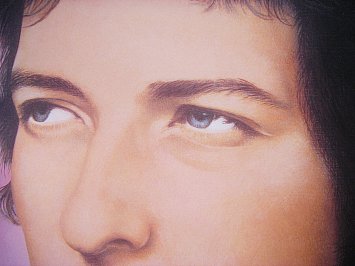
Bob Dylan, North Shore Events Centre, Auckland, New Zealand. February 2003
It's hard to know what to expect of Bob Dylan concerts these days: 40-something albums which range from the indispensable to the indifferent, wildly erratic shows which can include ancient folk-blues or covers of contemporary artists (he has recently included Warren Zevon songs), and that mighty catalogue of original music which now spans four decades.
For a Dylan show, we have learned, you "pays your money and takes your chance". On Friday an almost capacity crowd took its chance and was rewarded and bemused.
For decades Dylan has been introduced simply as "Columbia recording artist" but this time he was announced with a haiku-like career synopsis: the protest singer, the man who turned folk into rock, something about critical indifference and his recent terrific albums ... Bob for Beginners?
But beginners would have been mystified by the mystique of this dapper, frock-coated 61-year-old who powerfully propelled his distinctive croak through his back pages, most songs so reconfigured many recognised them only when a distinctive phrase such as "I'll be your baby tonight" emerged.
With an exceptionally disciplined and inventive band which kept the momentum and depth going, Dylan favoured many old classics and included only a few recent songs - rocking out from behind the keyboards with Tweedle Dee, like Bing Crosby gargling sandpaper on the gorgeous ballad Bye and Bye, and closing the encore with a ripping All Along the Watchtower.
The unsmiling Dylan looked assured if distant at the end, scanning the crowd as if searching for a missing relative.
But he dug deep into big-beat country, Texas swing, r'n'b and rock. There was a blistering Drifter's Escape, and some breathtakingly inventive Spanish-style acoustic playing on It's All Over Now Baby Blue. And a cheery Happy Birthday for guitarist Larry Campbell briefly cracked his mask.
Timely though Masters of War (delivered as throbbing Muddy Waters blues) was, it also raised questions. Dylan has long denied he is a political songwriter (what if he'd included his old pro-Israel Neighbourhood Bully?) and while the the song was welcomed, you might have wondered whether the audience brought more to it than the artist. Early on, when he pulled out his harmonica for Just Like a Woman, it was greeted as an iconic moment.
This was an audience prepared to enjoy its collective, if refracted, history, and even if there was an occasional sameness about the Texas r'n'b framework of some songs it was the legend as much as the music people had come for.
So it was a night of r'n'b rock'n'roll with touches of tough country and Spanish guitar, delivered by one of popular culture's most enduring and enigmatic figures.
As expected, old songs were warped and morphed, it was always interesting, sometimes amusing, occasionally disappointing and, often enough, revelatory and exciting.
Yes, it was hard to know what to expect from one song to the next. This was Bob after all.
Bob Dylan. Vector Arena, Auckland, New Zealand. August 2007
The Afghan taxi driver who took me home after the concert had heard of Bob Dylan, but asked, "What kind of music does he do?"
Good question.
Before an enthusiastic, capacity crowd -- mostly boomers but a conscpiucious scattering of twenty/thirtysomethings too -- the dapper Dylan (who stayed mostly splay-legged behind keyboards) and his five-piece band cut a wide swathe through the recent history of American popular music.
There was 50s rock'n'roll, wiry rock-blues which recalled his Blonde on Blonde period four decades ago, urgent r'n'b, some swinging country-rock with pedal steel guitar, echoes of 40s jump-jive, romantic ballads . . .
And for all of these styles he reconfigured songs from that vast catalogue (reaching right back to Don't Think Twice It's Alright) in a manner we have come to expect.
For years some bemoaned Dylan overhauling his classic songs, but increasingly it has been clear he doesn't insult his audiences by playing what they heard on records all those years ago.
Typically he remained emotionally distant and free of forced familiarity (no "Good evening Auckland" from Bob) but what he delivered was rock'n'roll entertainment. After 100 minutes he came back for an encore and the crowd was up and dancing.
Dylan may have lyrics to catch your attention ("You think I'm over the hill, you think I'm past my prime") but he can also do party-time music ("but we could have an awful good time", he sang, completing the rhyme to cheers).
Dylan's vocal mannerisms today are as easy to parody as his nasal whine of the 60s. He starts a lyric behind the beat then crams staccato words in at the end; it creates a sense of urgency in some songs, but isn't always successful.
Tangled Up in Blue sacrificed narrative emphasis and nuance for this mannered delivery, and Most Likely You Go Your Way possessed neither the venom nor compassion the lyrics allow. Dylan felt as removed from those, and a few others, as he did from the audience.
But at his best he still makes music which is compelling.
Standouts were numerous -- a menacing Things Have Changed ("I used to care, but . . ."), a sensitive When The Deal Goes Down, the bruising blues of Rollin' and Tumblin', an aching Nettie Moore, a very different Highway 61, a clearly articulated Masters of War, All Along the Watchtower which owed little to the Hendrix version which he has often acknowledged . . . All thrilling.
At 66, the rapier-thin Dylan looked faltering in his movements, but the music he and his band made, that gravelly voice and those singular lyrics, are timeless.

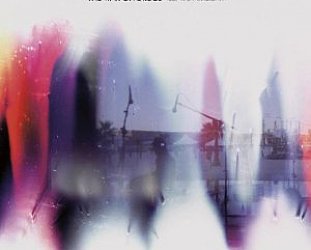
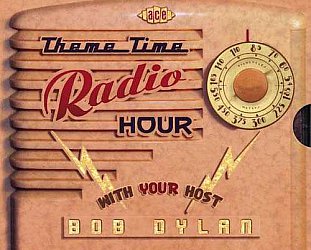

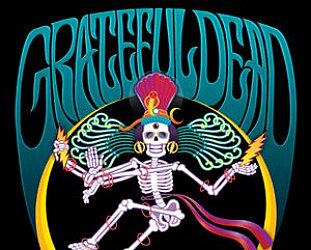
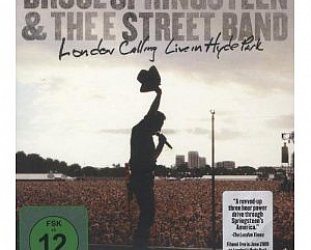
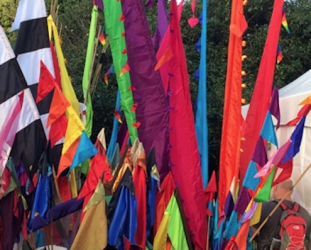
post a comment